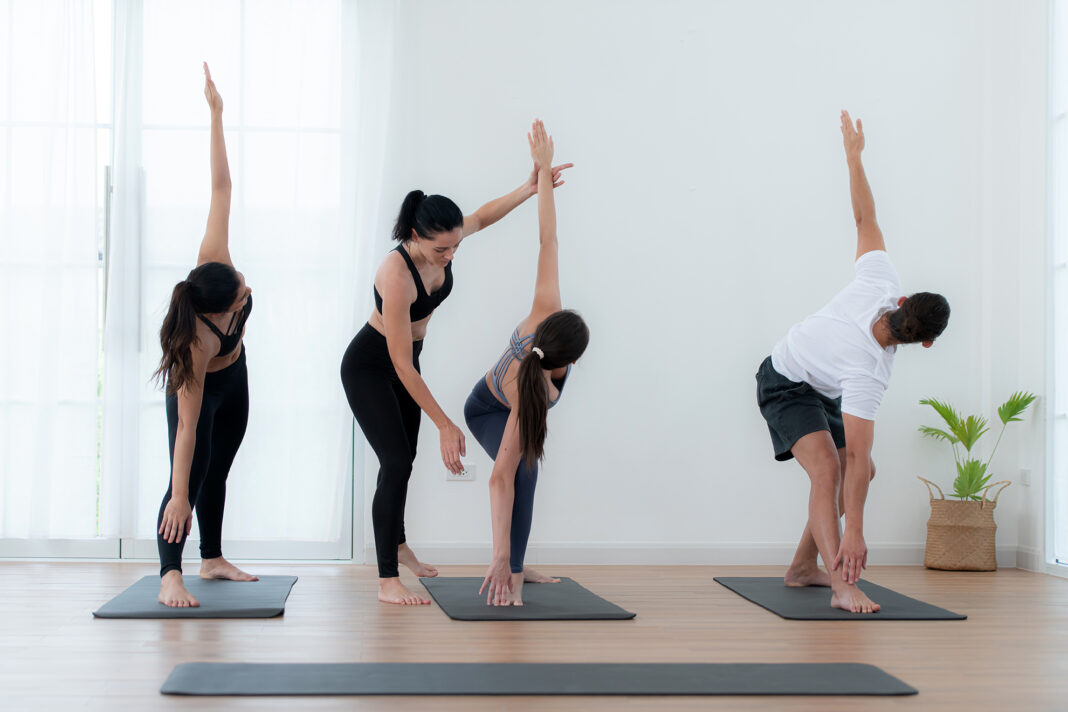When preparing for a 500-hour Yoga Teacher Training (YTT), you must mentally and physically prepare yourself for a marathon event. This one step further is about doing the different poses of yoga and learning the philosophy and teaching methods of yoga. Complete preparation allows participants to benefit the most from this transformative experience. This article will discuss how to prep for this hardcore training.
Understanding the Commitment
Most people who complete a 500-hour yoga teacher training have been doing yoga for many years. At the outset, the first thing to know is the program’s depth. This training often involves practicing advanced poses, studying anatomy, and showing up to practice teaching for hours on end. Making sure your mind is in the right place, that you have a realistic idea of what you are signing up for, and that you work your schedule around having clear intentions could keep you focused in the course.
Enhancing Physical Health
You need to be ready to grind over a long session. Of course, you can always get a head start by building strength, flexibility, and endurance beforehand. By practicing yoga daily, you condition the body to renew itself. A well-balanced diet made up of a variety of nutrients will help physical health. Maintaining energy throughout the training will come easily with proper hydration and rest.
Developing a Learning Mindset
A curious and open mind enhances the learning experience. Embracing a beginner’s mindset allows individuals to absorb new information without preconceived notions. Engaging with yoga literature and philosophy before the course begins can provide a solid foundation. This approach to a 500-hour yoga teacher training nurtures a deeper understanding and appreciation for the teachings received during the training.
Time Management Strategies
With training taking up nearly all your time, you must plan everything to get up and meet your responsibilities. A well-defined schedule that designates time for learning, practice, and leisure ensures that things don’t get out of hand fast. You can avoid overwhelming yourself by prioritizing tasks and setting realistic goals. Utilizing resources such as planners or internet calendars can help maintain a record of obligations.
Promoting Connections between Communities
While you can practice alone, connecting with fellow yoga enthusiasts adds value to the training. Local yoga classes and/or online forums are great places to bounce ideas off of and learn from each other. Having connections with teachers and classmates provides you with support and motivation. That community aspect boosts motivation and results in lasting friendships.
Words of Preparation for the Learning Environment
Establishing a designated area for studying and practicing helps to stay focused. A calm, clutter-free space enables you to learn better. Assemble required materials, like books, props, and a good yoga mat, to prepare for the training. A specific environment signifies that you’re ready for a whole course experience.
Maintaining Balance and Self-Care
Training takes time, but so does self-care; find a balance so the workload is manageable. Understanding that rest helps avoid burnout. Adding fun and relaxing activities to the daily routine will refresh the mind and body. Actively listening to your body and relaxing when necessary contributes to overall health.
Reflecting on Progress
Regular reflection on personal growth creates a sense of achievement and motivation. Keeping a journal documenting insights, challenges, and breakthroughs can provide valuable perspective. This practice encourages self-awareness and continuous improvement. Celebrating small victories along the way reinforces commitment and enthusiasm.
Conclusion
Although yoga is a physical practice–even a 500-hour Yoga Teacher Training will involve plenty of asana, or physical practice–your preparation goes beyond the mat. It covers preparing mentally, adapting emotionally, and managing your time. These are some practical strategies for training to gain the utmost advantage of this enriching journey. When approached with commitment and preparation, yoga becomes more than just an experience; it becomes a call for awakening and personal growth while discovering its true meaning beyond the mat.





